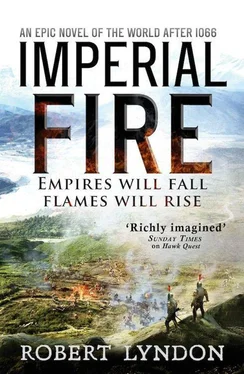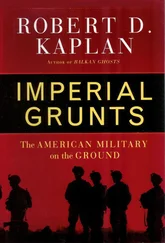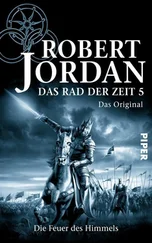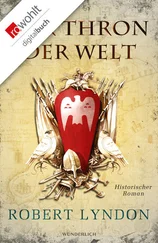Robert Lyndon - Imperial Fire
Здесь есть возможность читать онлайн «Robert Lyndon - Imperial Fire» весь текст электронной книги совершенно бесплатно (целиком полную версию без сокращений). В некоторых случаях можно слушать аудио, скачать через торрент в формате fb2 и присутствует краткое содержание. Жанр: Исторические приключения, на английском языке. Описание произведения, (предисловие) а так же отзывы посетителей доступны на портале библиотеки ЛибКат.
- Название:Imperial Fire
- Автор:
- Жанр:
- Год:неизвестен
- ISBN:нет данных
- Рейтинг книги:5 / 5. Голосов: 1
-
Избранное:Добавить в избранное
- Отзывы:
-
Ваша оценка:
- 100
- 1
- 2
- 3
- 4
- 5
Imperial Fire: краткое содержание, описание и аннотация
Предлагаем к чтению аннотацию, описание, краткое содержание или предисловие (зависит от того, что написал сам автор книги «Imperial Fire»). Если вы не нашли необходимую информацию о книге — напишите в комментариях, мы постараемся отыскать её.
Imperial Fire — читать онлайн бесплатно полную книгу (весь текст) целиком
Ниже представлен текст книги, разбитый по страницам. Система сохранения места последней прочитанной страницы, позволяет с удобством читать онлайн бесплатно книгу «Imperial Fire», без необходимости каждый раз заново искать на чём Вы остановились. Поставьте закладку, и сможете в любой момент перейти на страницу, на которой закончили чтение.
Интервал:
Закладка:
Robert Lyndon
Imperial Fire
He who is used to the comforts of life
and, proud and flushed with wine, suffers
little hardship living in the city,
will scarcely believe how I, weary,
have had to make the ocean paths my home.
The night-shadow grew long, it snowed from the north,
frost fettered the earth; hail fell to the ground,
coldest of grain. But now my blood
is stirred that I should make trial
of the mountainous streams, the tossing salt waves;
my heart’s longings always urge me
to undertake a journey, to visit the country
of a foreign people far across the sea.
(From ‘The Seafarer’ in the Exeter Book, England, tenth century)Dyrrachium, 1081
I
Vallon’s squadron struck the Via Egnatia around noon and pounded on down the paved road towards the west. They rode with fierce determination, bloodshot eyes fixed straight ahead, and at sunset three days later — the sixteenth day of October — they pulled up their blown horses on a wooded ridge overlooking the Adriatic coast. Vallon leaned forward, squinting into the evening light. The sun had already sunk halfway beneath the sea, leaving a burnished copper fairway fanning back to the port of Dyrrachium. From this distance the city was just a tiny blur, too far away for him to make out the Norman positions or the damage inflicted by their siege weapons.
Shortening focus, Vallon studied the Byzantine encampment about four miles inland, entrenched in a broad rectangle along a meandering river. A pall of dust half a mile long drifted away from the camp.
He glanced at Josselin, one of his centurions. ‘It would appear that we’re the last scrapings of the imperial barrel.’
Josselin nodded. ‘Judging by the size of those earthworks, I’d put our strength at more than fifteen thousand.’
Vallon conned the terrain, trying to work out where the battle would be fought. On the plain north of the city, he decided.
Only a sliver of sun remained above the horizon and the sea had darkened to deep violet and indigo. He looked back down the line. His Turkmen troops dozed in their saddles. Most of the rest of the squadron had dismounted and sat slumped against the cork oaks, their eyes raw hollows in faces masked with dust. In the last two weeks they’d ridden four hundred miles cross-grain through the Balkans from Bulgaria’s Danube border, and now they looked more like the survivors of a battle rather than warriors about to go into action.
From the hillside below came the clanking of sheep bells and the sweet riffle of running water. Some of the soldiers were already ferrying skins and barrels back up to their comrades and their thirsty mounts. Vallon’s three centurions sat their horses, waiting for his orders. He hawked to clear the dust from his throat. ‘It will be hell if we arrive at the camp after dark. Endless questions, ordered from pillar to post. We’ll be lucky to find a billet before dawn. We’ll rest here tonight and ride in before sunrise. Dole out what’s left of our provisions.’ He turned to Conrad, his second-in-command, a German from Silesia. ‘Captain, pick ten men, smarten them up and inform headquarters of our arrival. Take the wounded in one of the supply carts. Beg or borrow whatever food you can. Find out what’s going on and send a report.’
‘Yes, Count.’
Vallon’s rank wasn’t as grand as it sounded. As Kome of a bandon, he commanded a squadron of light and medium cavalry numbering two hundred and ninety-six men by this morning’s muster. That was twenty fewer than when he’d left Constantinople for the Bulgarian marches seven months ago. The Outlanders they were called — mercenaries recruited from all over the Byzantine empire and beyond.
Shadows were pooling among the trees when Conrad’s party left, the wheels of the wagon wobbling and squeaking on its worn axle, five bandaged casualties lying in its bed. Vallon led his horse towards the spring, limping slightly — the effect of a ligament torn in a swordfight nine years earlier. At the age of thirty-nine, he was beginning to count the cost of even the minor wounds and knocks he’d suffered in more than twenty years of campaigning.
The spring ran bubbling from the base of an ancient holm oak whose trunk parted from the roots to create a cleft housing a painted statue of the Virgin holding the baby Jesus. Icons, bells and wind chimes hung from the branches. An old man with a face like an empty purse sat beside the spring, his arms crossed tight over his chest. A boy attended him, one hand placed on the patriarch’s shoulder.
Vallon nodded at him. ‘God keep you, father.’
‘Your men are stealing my water.’
Vallon dropped to his knees beside his horse. ‘It seems to me that there’s not one drop less than when we arrived.’
The old man rocked back and forth in resentment. His eyes were clouded. ‘The spring is sacred. You should pay for it.’
Vallon leaned over the pool, pushed back his hair and scooped a handful of water into his parched mouth. His eyes closed in rapture at the delicious sensation of cool liquid sliding down his throat. ‘All water’s sacred to men who thirst. But who to pay? He who created it or the man who guards it? I’ll gladly offer my prayers to both.’
The old man mumbled to himself.
Vallon wiped his mouth and nodded towards the plain, where fires were beginning to prick the rising tide of darkness. ‘Do you know what’s going on down there?’
The old man spat. ‘Murder, rape, thievery — all the ills that follow in an army’s train.’
Vallon smiled. ‘I’ll tell you what I will pay for.’ He fished a few coins from his purse and pressed them into the wrinkled palm. ‘Some of my men have the marsh sickness from spending too long on the Danube plain. They can’t stomach rough rations. If you could spare a basket of eggs, some milk and fresh bread…’
The boy took the coins and examined the imperial heads. ‘They’re good, Grandpa.’
The old man squinted sightlessly. ‘You’re not a Greek.’
‘A Frank. Driven by life’s tempests to this far shore.’
The man struggled to his feet. ‘Franks, English, Russians, Turks… The empire’s infested with foreign soldiers.’
‘Who are fighting to defend its borders while your native-born lords show off the latest fashions in the Hippodrome.’
The boy guided his grandfather away down the hillside. Vallon chewed a supper of raisins and hardtack, drew a blanket around his shoulders and dropped into sleep to the tinkling of bells.
The boy returning woke him. ‘Here are eggs and bread, Lord.’
Vallon rubbed his eyes and faced uphill. ‘Captain Josselin, some food for the invalids.’
When the officer left, Vallon hunched forward, examining the fires of the imperial army laid out in a grid, the flames of the Normans strung in a burning necklace around the beleaguered city. All he knew about the Norman force was that it was led by Robert Guiscard, the ‘Crafty’, Duke of Apulia and Calabria, a general of genius who’d ridden into Italy as a mere adventurer and within fifteen years had carved out a dukedom and made the pope his staunch ally.
A torch flickered through the trees, approaching up the road. Hooves clattered. By the light of the wind-torn brand, Vallon made out a rider leading a packhorse. The rider drew closer, a man of massive bulk. Tongues of flame fleeted across a braided vermilion beard, receding yellow hair, a red tunic medallioned in gold.
Shadows darted into the path of the rider. ‘Halt! Who goes there?’
‘Beorn the Bashful, primikerios in the Varangian Guard. Are you Count Vallon’s men? Good. Lead me to him.’
Читать дальшеИнтервал:
Закладка:
Похожие книги на «Imperial Fire»
Представляем Вашему вниманию похожие книги на «Imperial Fire» списком для выбора. Мы отобрали схожую по названию и смыслу литературу в надежде предоставить читателям больше вариантов отыскать новые, интересные, ещё непрочитанные произведения.
Обсуждение, отзывы о книге «Imperial Fire» и просто собственные мнения читателей. Оставьте ваши комментарии, напишите, что Вы думаете о произведении, его смысле или главных героях. Укажите что конкретно понравилось, а что нет, и почему Вы так считаете.










